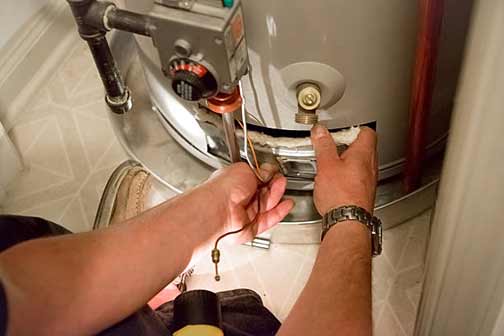
As a property owner, it’s crucial to maintain the plumbing systems within your properties and have them in perfect condition, not only for the comfort of the tenants, but also to prevent costly repairs and prolong the lifespan of your investment. Plumbing issues can be inconvenient and costly if not promptly taken care of. This comprehensive checklist provides landlords and property managers expert tips and strategies on how to service plumbing systems to high efficiency and top working order.
Understanding Why Plumbing Maintenance is Essential
Beyond leak fixes and drain clearing, maintenance plumbing is an active process of ensuring everything about the plumbing system is functioning at maximum. Proper maintenance prevents minor problems from escalating into major ones, keeping landlords’ unexpected bills to a minimum and their property value intact. A well-working plumbing system also gives tenants the conveniences they deserve, making their living experience valuable and reducing tenant turnover.
Besides, good plumbing facilitates water conservation activities, reducing your buildings’ ecological footprint. Since landlords prioritize plumbing maintenance, they indicate their commitment to sustainability and sustainable property management.
Carrying out Regular Checks
There is a need to regularly inspect for potential plumbing problems before they escalate. Landlords must arrange regular checks at least twice annually, addressing all plumbing system aspects. The checks should involve leak checkups, examination of pipes for rusting, and verifying water pressure levels are within required ranges. Landlords also need to evaluate the state of fixtures like faucets, showerheads, and toilets to determine that they are in working order.
During inspection, evidence of findings and any corrections done should be documented, hence a record to be referred to in the future and used when budgeting. A systematic method of inspection keeps the landlord well-organized and proactive when dealing with plumbing problems.

Repairing Common Plumbing Issues
Landlords are likely to encounter common plumbing issues such as dripping faucets, running toilets, and slow drains. Though they are minor, they can lead to increased water bills and complaints from tenants. It is advisable to address these problems quickly not only to enhance tenant comfort but also prevent further damage to the plumbing system.
Dripping faucets can waste significant amounts of water in the long term, meaning increased utility bills. Landlords have to replace seals and washers on a regular basis to prevent leakage. Running toilets can typically be fixed by readjusting the float or replacing the flapper valve. A clogged drain can typically be unclogged with a plunger or drain snake. By addressing these issues immediately, landlords can make sure that the plumbing system works efficiently and prevent more complex problems from developing.
Ensuring Proper Pipe Insulation
Pipe insulation is also a crucial aspect of plumbing maintenance, especially in areas with cold weather. Adequate insulation ensures pipes do not freeze and burst, which can cause expensive water damage. Landlords have to ensure that all exposed pipes are adequately insulated and inspect insulation for damage on a regular basis.
In addition to insulating against freezing, pipe insulation also reduces energy use by stabilizing water temperatures. This is particularly beneficial for hot water pipes, which lose heat as water flows through. Insulating these kinds of pipes ensures that tenants receive hot water more efficiently, improving their living standards. Insulation of pipes in unheated areas, such as basements and garages, should also be contemplated by landlords to prevent temperature fluctuations and potential burst pipe repair emergencies.
Maintaining Water Heaters
Water heaters are fundamental parts of any residential or commercial building’s plumbing system, providing hot water to be used by tenants on a daily basis. Regular water heater maintenance includes draining the tank to remove the sediment build-up, resetting the thermostat to right settings, and checking the unit for corrosion or leakage. These routines help maintain proper performance and prolong the life of the water heater.
Flushing the tank is also necessary because sediment build-up can reduce the heater efficiency as well as consume more energy. The landlord should also set the thermostat to an optimal level, typically 120 degrees Fahrenheit, in order to have energy efficiency as well as comfort to the renters. Inspecting for leaks or corrosion on the unit will ensure avoiding major damage and high repair bills. Regular maintenance extends the lifespan of the water heater and also ensures premature replacement of the water heater.

Implementing Preventive Measures
Preventive measures play a critical role in reducing the possibility of plumbing issues. Landlords have to inform the tenants on proper use of plumbing appliances, i.e., not flushing non-biodegradable things into the toilet and not pouring grease down the kitchen sink. Providing instructions to the tenants minimizes misuse and safeguards them from clogs.
Landlords can also install drain covers and strainers to capture debris and prevent clogging. They clean regularly to maintain their efficiency. Landlords can also install water-saving fixtures, such as low-flow showerheads and toilets, to conserve water and reduce utility bills. These precautionary measures enable landlords to have a more efficient and sustainable plumbing system as well as less likelihood of high-cost repairs.
Utilizing Professional Plumbing Services
Whereas minor plumbing issues may be handled by landlords, professional expertise is essential for complex problems. Having a professional plumbing service on their side provides landlords with assurance that they have experienced plumbers available to handle any emergency plumbing issue. Professionals can also provide experienced advice on servicing the system and how to implement upgrades.
Landlords should look for plumbing companies that provide emergency response, so critical problems are dealt with promptly. Frequent advice from expert plumbers enables landlords to be updated on the newest technologies and trends in plumbing maintenance and enables them to make wise choices regarding upgrades and enhancements. Through the use of expert services, landlords can maintain the longevity and performance of their plumbing systems.
Ensuring Tenant Satisfaction Through Effective Communication
Good communication with tenants about plumbing maintenance is critical to satisfy them. Landlords must keep tenants notified of when inspections, maintenance work, and any disruptions will take place. Having tenants report any plumbing problems in a timely manner provides the opportunity to resolve them fast, bettering their overall experience and confidence in the landlord’s management.
Regular communication can be made possible by newsletters, email, or tenant portals, keeping tenants informed and reminded of plumbing maintenance. Landlords must also be prompt in responding to tenant questions and issues, showing that they care about the comfort of their living space. Through open communication, landlords are able to gain strong tenant relations and satisfaction.
Budgeting for Plumbing Maintenance
Maintenance budgeting for plumbing is an essential aspect of property management. Landlords must reserve money specifically for regular maintenance and surprise repairs. A good budget enables landlords to address plumbing issues instantly without going overboard, maintaining the integrity of the property and the satisfaction of the tenants.
Landlords can consider the creation of a reserve fund to offer emergency repairs so they are able to address critical issues right away. Revision and budget revision throughout the duration of maintenance expenses and needs can prepare landlords for anything. Budgeting with plumbing maintenance at the top prioritizes ensures landlords preserve their investment and ensure long-term success for their properties.
Conclusion: Prioritizing Plumbing Maintenance for Long-Term Success
In conclusion, plumbing maintenance is an essential undertaking for landlords and property managers. With this comprehensive list, landlords can be assured that their plumbing system is properly maintained, efficient, and capable of providing comfort to tenants through the availability of properly conditioned buildings. Proper maintenance of plumbing not only prevents costly repairs but also promotes tenant satisfaction, thus supporting the long-term sustainability of the investment property.
Landlords who invest in proactive plumbing maintenance demonstrate their commitment to providing high-quality living spaces and sustainable property management. By proactive involvement and education, landlords are able to protect investments, reduce environmental impacts, and create positive tenant experiences. Ultimately, an emphasis on plumbing maintenance is a large contributor to long-term success and sustainability in property management.

